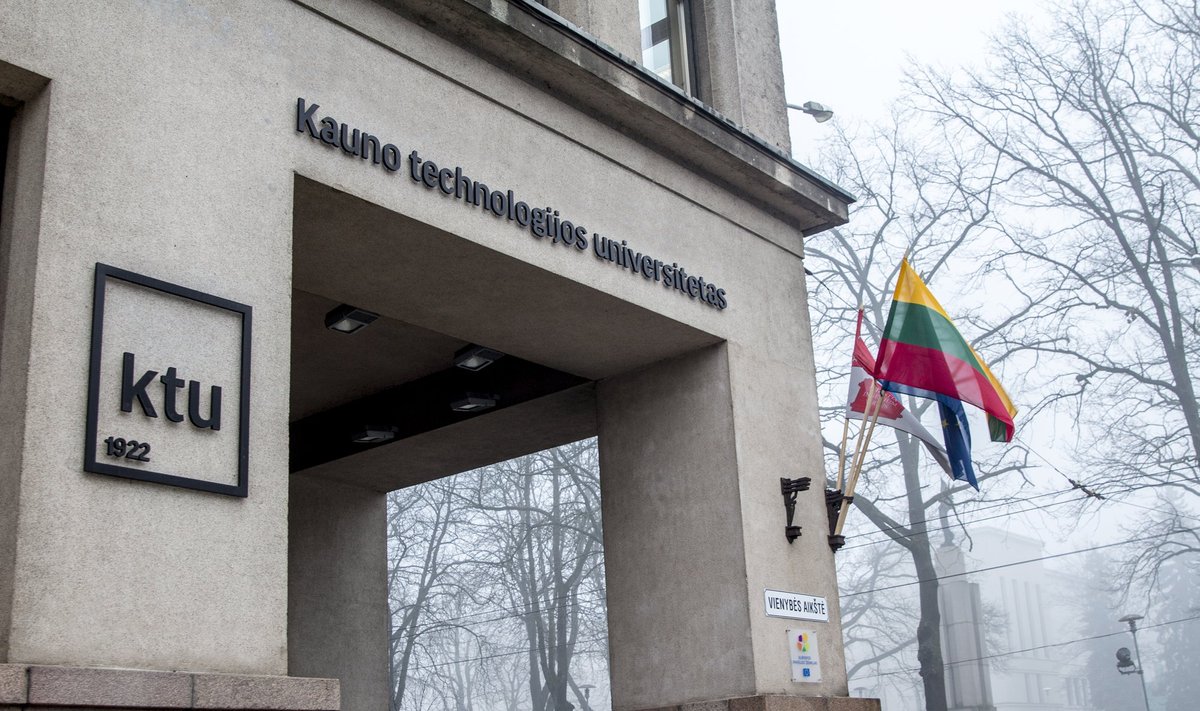In a three-year pilot project, the ECIU universities will pioneer challenge-based instead of degree-based education on a European scale. The ECIU University will be open to students, researchers, industry and society at large, across borders. It will offer demand-driven, interdisciplinary and flexible education, tailored to the needs of society and students.
Furthermore, the challenges will focus on the UN Sustainable Development Goal for cities and communities. This means learners at ECIU University will be tackling real and important problems in society and help shape a better world.
“This project is an incredible achievement not only for our university but also for Lithuania and the entire Baltic region. KTU has a unique opportunity to create the future European university in cooperation with the members of the ECIU consortium. I have no doubts that we will successfully introduce the novelties and innovations, contribute to the policy-making in research and studies of the European Union, and reveal the existing scientific and academic potential. Today, we will begin creating the future of higher education with our partners – leading European universities!” – rejoices KTU Rector Prof. Eugenijus Valatka.
Prestigious EU support
Following up an initiative by French President Emmanuel Macron, the European Commission announced a call for European Universities, as part of the EU Erasmus+ programme. In the call, 60 million euros (max 5 million euro per project for 3 years) were made available for university alliances to strengthen their collaborations. The alliances had to work towards a European curriculum with innovative pedagogies, structured mobility, and a European campus.
On June 26, the Commission announced ECIU University as one of 17 successful applicants.
Universities for the future
By developing this new educational model, the ECIU University responds to the urgent societal challenges the world is facing.
“These challenges we can only solve together with our most entrepreneurial students, our best researchers and experts from society”, – says ECIU President Victor van der Chijs (University of Twente).
“This EU grant confirms that our consortium is leading in innovating teaching and learning, and heading in the right direction when it comes to reinventing the relationship of universities with society and the challenges surrounding them.”
Ground-breaking educational model
The ECIU University will create a European platform where students, researchers, society and industry, can work together to find innovative solutions to real-life challenges. It will enhance the flexibility of education by granting learners “micro-credits” for individual courses, which they can gather in a competence passport tailored to their needs, instead of offering a fixed “one-size-fits-all” degree.
This increased flexibility will also enable life-long learners to access education more easily. The ECIU University will work closely with society, establish pop-up laboratories to test innovate teaching and research practices, and will foster ideas to enhance physical, blended and virtual mobility among universities.
Mobility and transnationality are at the core of the ECIU University. To facilitate relations among the members, three Challenge Innovation Hubs will be set up (in Linkoping, Hamburg, and Barcelona).
Support from society and industry
The plan for the ECIU University was co-created with industry, public organisations, society, academics, future and current students at stakeholder events all over Europe. The universities’ industry partners and almost all regional public authorities also support the creation of the ECIU University.
Supporting industry stakeholders are Airbus, Cisco, Engineering Ingegneria Informatica SpA, Ericsson AB, Hella Lithuania, Intel, Lietuvos Energija, Lyse Group, NXP, Ponsse, Sandoz Industrial Products S.p.A. Gruppo Novartis, Sick AG, and Suez Environment.
“The strength of HELLA is its global team working and cooperating despite the distance and cultural differences. Realising the benefits of international cooperation, we support the vision of the ECIU university to create a new platform for education and research. The European universities have to respond to the rapidly changing society and develop the educational system that is flexible and open in terms of time and location. We hope that active cooperation between HELLA Lithuania and ECIU university will create the space for implementation of new intercultural ideas, education, and research, as well as the development of social welfare”, – says Managing Director of HELLA Lithuania Michael Jarecki.
Kick-off in November
The project’s official launch is in November. From 2020 onwards, students, employees and external collaborators will be given the opportunity to take part in piloting the ground-breaking education system.
“The ECIU University is a very ambitious project. It caught the attention of entrepreneurs and educational experts from all over the world. I am very happy with all the positive feedback received so far, and I warmly invite society, researchers, students, and stakeholders to come up with real-life challenges we can work on”,– says Sander Lotze, the project director for ECIU University.
